Last updated on May 24th, 2023
- What Does Trout Taste Like: Unraveling the Flavor Mysteries - August 2, 2023
- Best Fishing Bibs Tested & Reviewed: Buyer’s Guide - July 19, 2023
- Fishing for Whiskers: Best Bait for Catfish - July 12, 2023
Yellow perch is a popular freshwater fish that has gained quite a following in recent years. If you’re wondering what makes this smaller fish so special, then you’ve come to the right place. In this blog post, we’ll cover all aspects of perch fish – from its flavor and texture to preparation and cooking techniques. We’ll also compare yellow perch with other types of fish such as sea bass and highlight why it’s considered one of the best sources of fatty acids for your diet. So sit tight and get ready to learn more about this delicious catch!
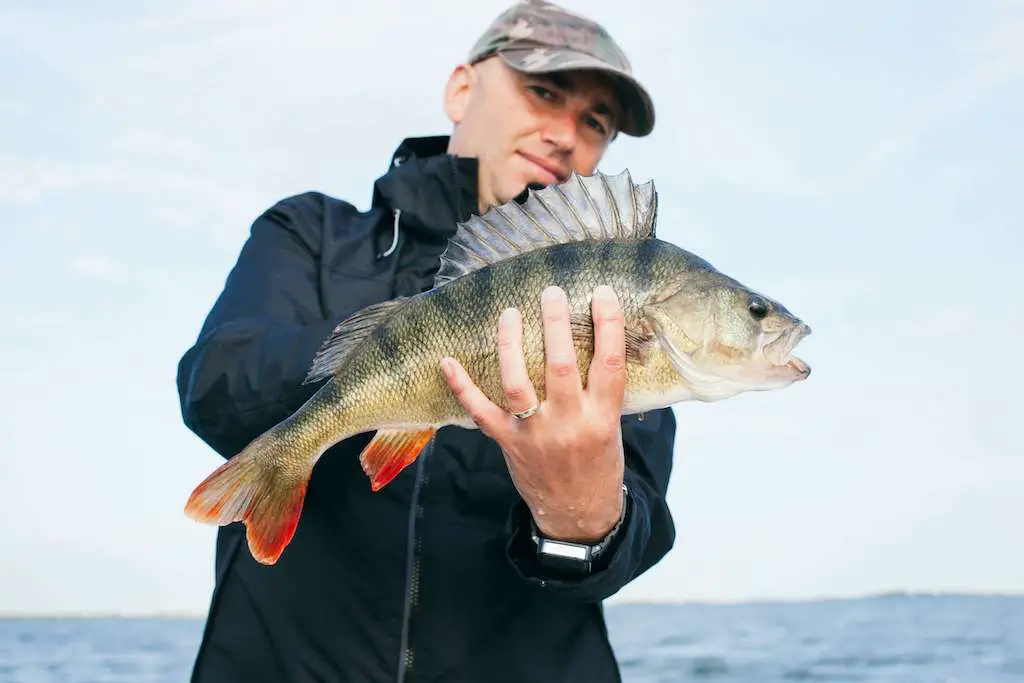

Table of Contents:
- Introduction to Perch as a Delicious and Nutritious Fish
- What Does Perch Taste Like?
- Recipe Recommendations
- Where Do You Find Perch?
- FAQs
- Conclusion
Introduction to Perch as a Delicious and Nutritious Fish
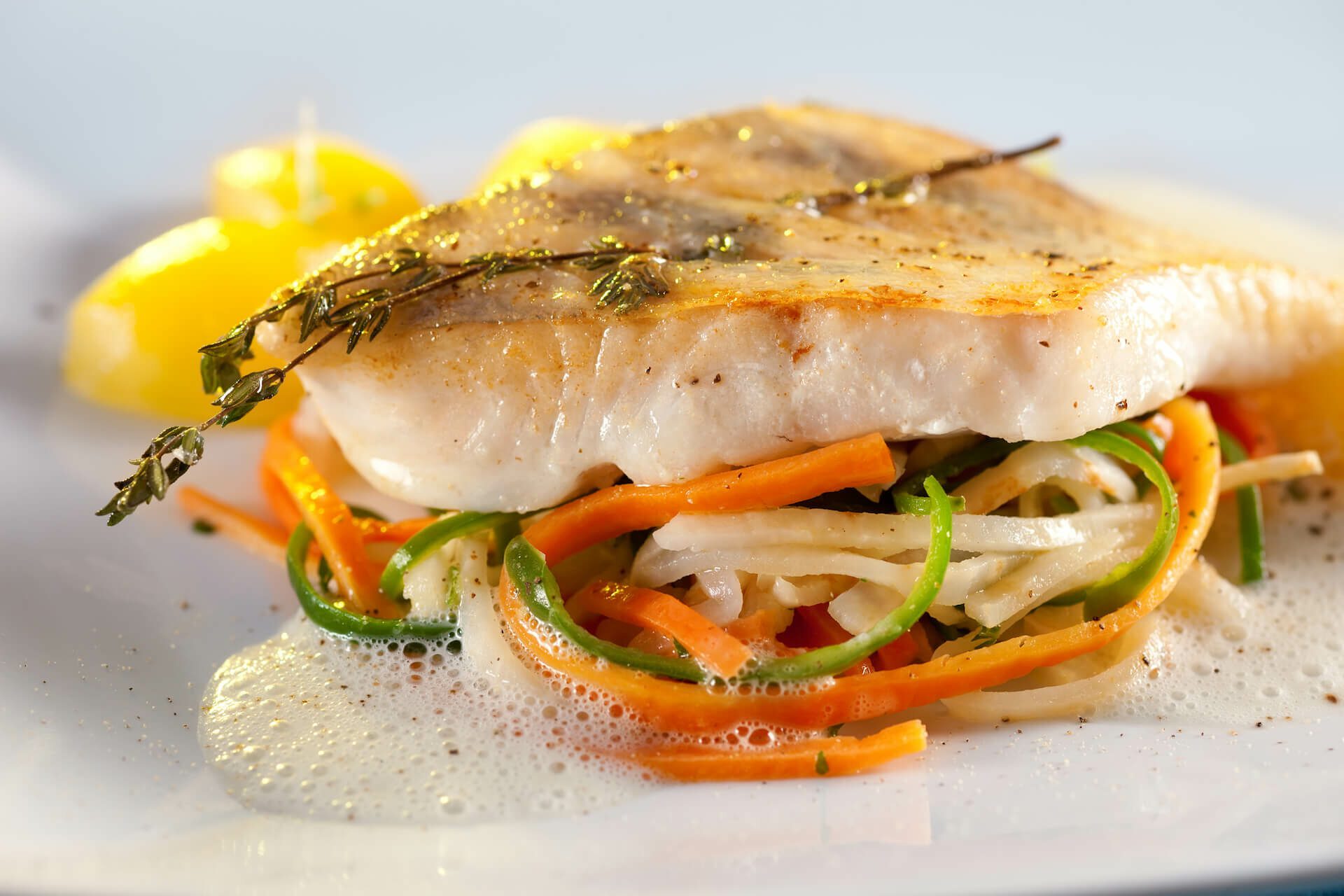

Perch is a delectable and nutritious fish that’s adored by anglers, fishers, bassists, and recreational fishermen. It has a mild flavor with slightly sweet notes that makes it an excellent addition to various recipes. Nutritionally speaking, perch offers omega-3 fatty acids, vitamins B12 and D, selenium, and protein – making it a great source of essential nutrients for any diet.
When cooked correctly perch can be incredibly flavorful without being overly fishy or salty. The flesh is firm yet tender which makes it ideal for frying or grilling whole whitefishes as well as adding to soups and stews. Additionally the bones are edible so you can get even more out of your catch by using them in stock-based dishes like chowders.
Is eating perch safe? Absolutely. However there are some species such as yellow/surfed up ones that should not be consumed raw due to potential health risks associated with them; these include ciguatera poisoning from tropical reefs or paralytic shellfish poisoning from cold water areas. To avoid this risk altogether simply cook your catch thoroughly before consuming – this will ensure any bacteria present is killed off in the cooking process thus avoiding any potential illnesses related to consuming raw seafoods.
Key Takeaway: Perch is a delicious and nutritious fish that’s popular among anglers, fishermen, bass fishermen, and recreational fishers. Cooking it correctly brings out its mild flavor with slightly sweet notes; when prepared right perch can be an excellent addition to various recipes.
What Does Perch Taste Like?
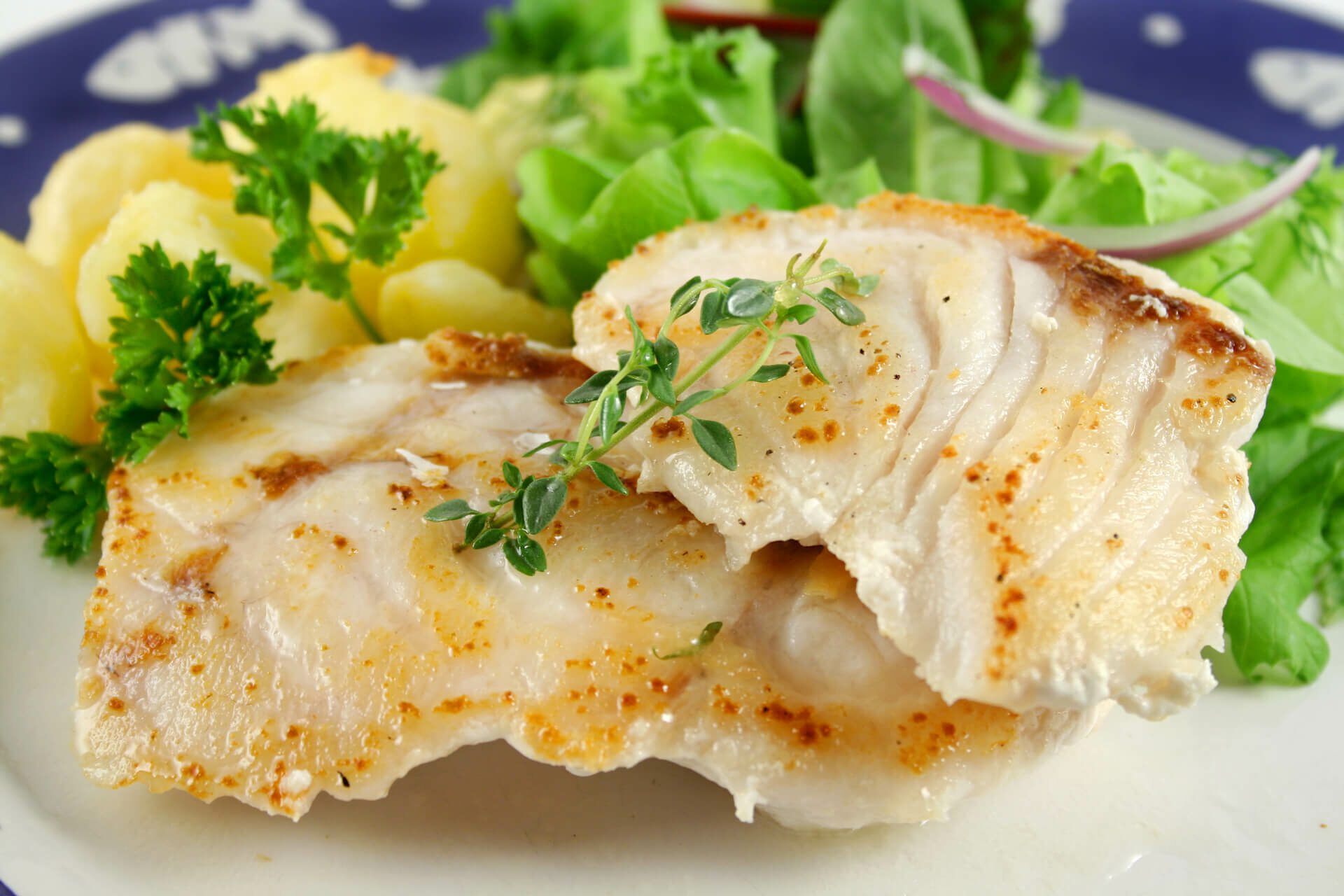

Perch is a mild-tasting fish with sweet undertones that make it perfect for a variety of cooking styles. Depending on where the perch was caught, its flavor can vary. For example, freshwater lakes and rivers often yield better-tasting meat than those found in polluted waters. To bring out the best flavors of your catch, use proper seasoning techniques like salt & black pepper or garlic and onions.
When cooked correctly, perch can be surprisingly delicious. The subtle sweetness of the flesh complements savory seasonings perfectly. Perch can be enhanced with a delicate sauce, such as lemon butter or white wine, to give it an extra zest without diminishing its natural flavor.
For those who enjoy raw seafood dishes, eating perch raw is not recommended due to potential health risks associated with consuming yellow/surfed up species from contaminated water sources – so always cook your catch safely. But if you do decide to try it anyway, remember that freshness matters; make sure you’re using only high quality ingredients for any sushi-style recipes featuring this popular gamefish.
Whether grilled whole or fried in strips – there are plenty of recipe recommendations out there for cooking delicious meals using freshly caught wild game such as perchs. To add some extra flair to your plate pairings like roasted vegetables go great alongside these delectable delicacies; they’ll help balance out their richness while adding some healthy nutrition into your meal too.
Key Takeaway: Perch is a mild-tasting fish with sweet undertones, making it perfect for cooking and can be surprisingly delicious when prepared correctly. Anglers in North America’s Great Lakes region will have success hunting perches to bring home as dinner – just make sure to use proper seasoning techniques like salt & black pepper or garlic and onions.
Recipe Recommendations
Frying can be a great way to unlock the scrumptious taste of recently-caught wild perch. To begin, season your fish lightly with salt and black pepper. Then, heat a skillet over medium-high heat with some olive oil or butter until it’s hot enough that a drop of water sizzles when added. Carefully place your fillets in the pan and cook for 3-4 minutes on each side until they are golden brown. Once golden brown, transfer the fillets to a plate with paper towels to soak up any extra oil before serving.
For an extra flavor kick, try adding minced garlic, diced red onion and jalapeno peppers into the skillet while cooking your perch fillets. This will give them an extra spicy kick that pairs perfectly with fresh lemon juice squeezed atop each piece just before serving. Roasted vegetables make great sides for this dish too – carrots, zucchini or mashed potatoes all work well here.
If you want to make sure your meal is even healthier but still packed full of flavor then opt for baking instead of frying. Set the oven to 375°F (190°C) and prepare a baking sheet with nonstick spray or foil for arranging seasoned perch filets. Arrange seasoned perch filets in a single layer on top, then bake for 10–12 minutes until cooked through, flipping halfway through if needed. Serve warm, garnished generously with freshly chopped parsley leaves alongside roasted vegetables like bell peppers, mushrooms, broccoli and cauliflower etcetera.
Preparing freshly-caught wild game, such as perchs, can be an enjoyable undertaking; understanding the correct methods is key to making the most of your catch. To make sure you have an enjoyable meal, consider pairing your whitefish delicacies with roasted vegetables for great side dishes that will complete any platter.
When it comes to whitefish, there are myriad possibilities for accompaniments. Roasted vegetables make a great accompaniment to any platter of fried or grilled whitefish delicacies. Carrots, zucchini and potatoes all go well with fish dishes. For a tantalizing flavor pairing, try roasting carrots with garlic and olive oil for an appetizing accompaniment to your plate of freshly-caught whitefish. Potatoes can be mashed into creamy goodness and topped with herbs for an added flavor kick – the perfect complement to your plate of fresh fish. If you’re looking for something more adventurous, try adding roasted Brussels sprouts or roasted cauliflower florets for an unexpected twist on classic sides.
For those who want something light yet flavorful, try pairing steamed green beans with your meal instead of heavy starch-based sides like potatoes or rice. The bright green color adds visual appeal while also providing essential vitamins and minerals in every bite. To round out the meal even further, add some lemon wedges which provide both tartness and acidity that will help cut through the richness of your grilled or fried catch-of-the day entree.
No matter what type of accompaniments you choose to serve alongside your freshly caught wild game such as whitefishes – just remember that balance is key. A mix of crunchy vegetables paired with creamy mashed potatoes makes for a balanced plate full of delicious flavors everyone will enjoy, so don’t forget about adding some variety when serving up this tasty dish.
For a delicious and nutritious meal, pair freshly-caught whitefish with roasted vegetables for an unforgettable experience. Furthermore, understanding the habitat preferences of this popular game fish is essential to finding them in their natural environment.
Key Takeaway: To serve up a delicious plate of whitefish, try pairing it with roasted vegetables like carrots and zucchini for savory sides. For something light yet flavorful, steam green beans or add lemon wedges to round out the meal. Remember that variety is key when serving this tasty dish – mix crunchy vegetables with creamy mashed potatoes for balance.
Where Do You Find Perch?
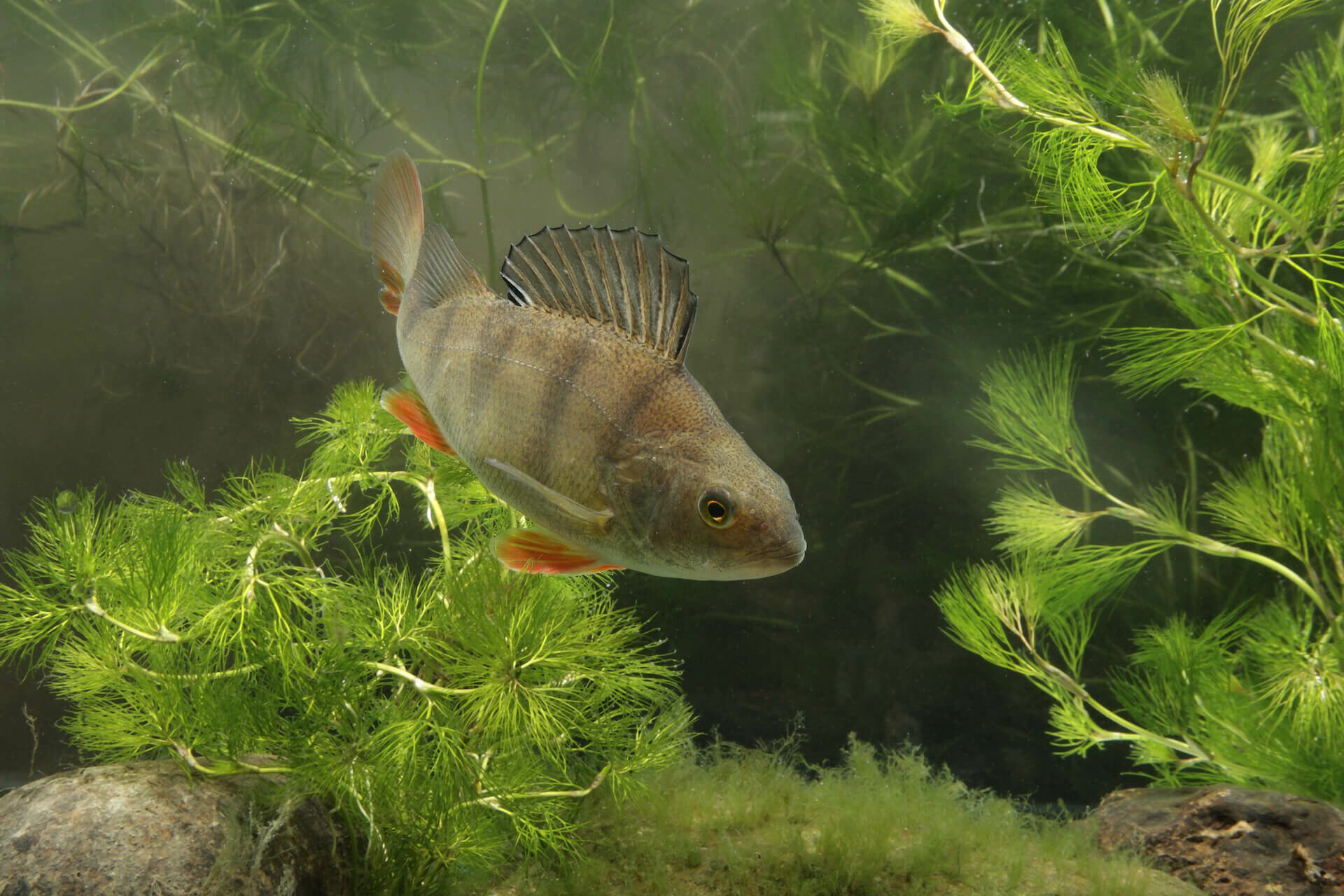

Perch, a popular game fish found in the Great Lakes region of North America, can be caught using various techniques and lures. These delicious fish are widely distributed throughout this area and can be found in many different habitats. Knowing where to look for them is key to successful fishing trips.
When it comes to analyzing the habitat needs of perch, various components must be taken into account. Perch prefer clear water with plenty of vegetation such as weeds or algae beds which provide cover from predators and places to hide while they feed on small invertebrates like crustaceans or insects. They also tend to congregate near structure such as rocks, logs, stumps or even sunken trees since these areas offer protection from currents and waves while providing easy access to food sources. Anglers should take note of the depths they search for perch activity, which will vary depending on the season and time of day; these fish prefer temperatures in between 40-80°F (4-27°C).
For recreational fishermen hoping to catch perch in their natural environment, trolling is one technique that has proven effective over time due its ability reach large areas quickly without spooking the fish away with too much noise or movement. A good setup includes an ultralight spinning rig equipped with 6-8 pound test fluorocarbon leader paired with finesse minnow type baits measuring around 2 inches long either brightly colored patterns like white subtle ones work just fine too. In addition try adding some scent attractants onto your bait for an extra boost if needed during those tough times when bites aren’t coming easily. This method works best when done along weed lines since most species will take advantage of any available cover offered by vegetation before attacking a lure presented by an angler.
Finally, another great way to find success targeting these tasty creatures is by casting around rocky shorelines during low light conditions; early morning hours usually being prime time periods when searching out active schools feeding along edges, break walls, jetties etc. Be sure to use heavier weights to ensure proper depth penetration through current and waves while still keeping presentation as natural as possible to avoid scaring off potential catches. Lastly, don’t forget to keep your eyes peeled for any visible surface activity which may indicate the presence of lurking below the surface waiting to ambush unsuspecting prey.
Key Takeaway: Perch can be caught with finesse lures and trolling techniques in clear water, near structure like rocks or logs, as well as along weed lines. Anglers should also pay attention to low light conditions when casting around rocky shorelines for these delicious fish that are just waiting to ambush unsuspecting prey.
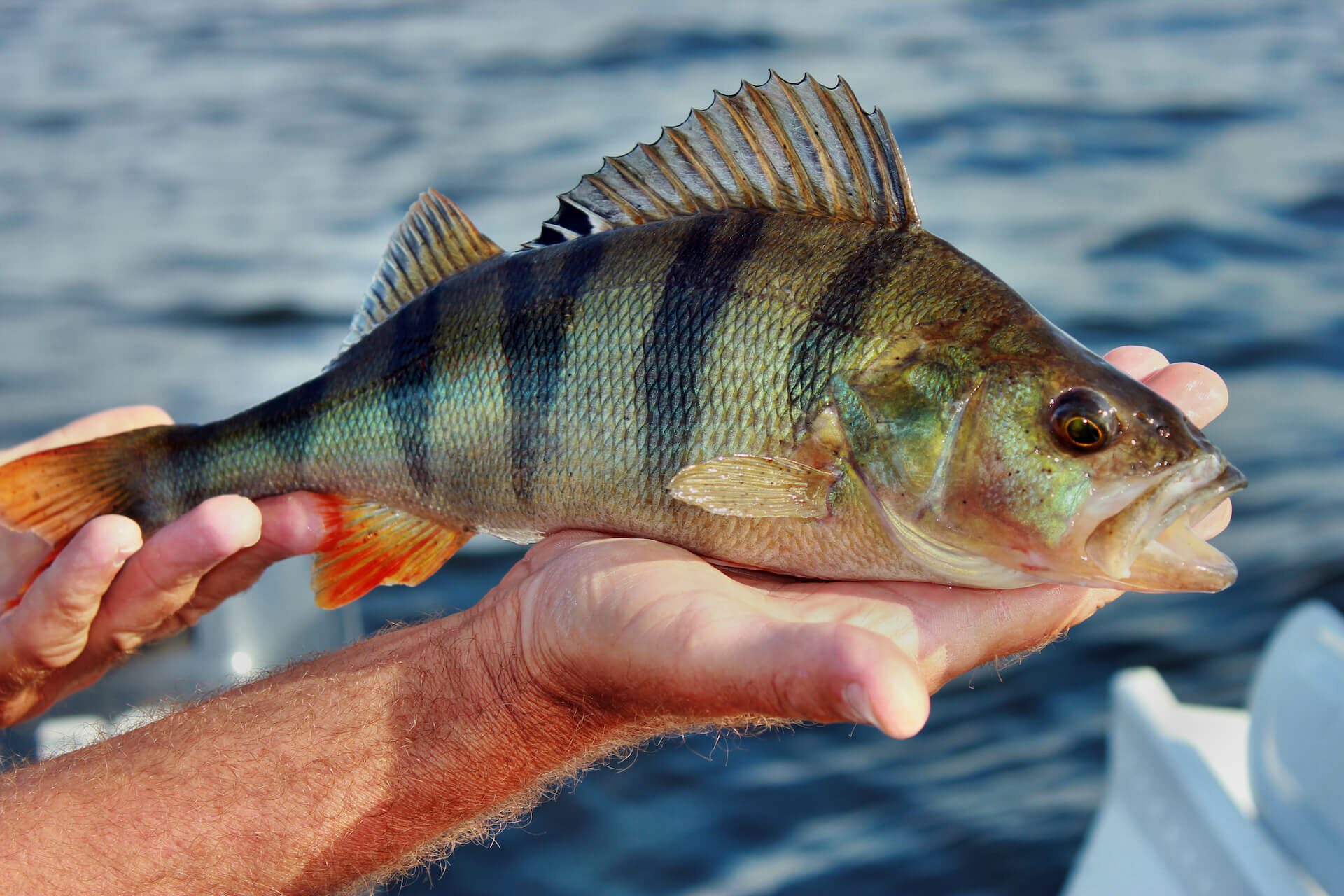

FAQs on What does Perch Taste Like
Is perch a good fish to eat?
Yes, perch is a good fish to eat. It has a mild flavor and firm texture that makes it an ideal choice for many types of dishes. Perch can be prepared in several ways including baking, grilling, broiling or pan-frying. When cooked properly, the delicate white flesh becomes flaky and moist with a subtle sweet taste that pairs well with herbs and spices. Perch is packed with omega-3s, which can help promote cardiovascular wellness.
Is freshwater perch healthy?
Yes, freshwater perch is a healthy fish to eat. Freshwater perch is packed with beneficial nutrients such as omega-3 fatty acids, vitamin D, iron, magnesium and zinc which make it a healthy choice for people who prefer lighter tasting seafood dishes. Freshwater perch also has low levels of mercury making it safe for consumption. Its mild flavor makes it an ideal choice for people who prefer lighter tasting seafood dishes. Freshwater perch is a beneficial selection for those wishing to sustain or better their health, as it provides lean protein.
What does perch taste like?
Perch has a mild, delicate flavor that is similar to other white fish. Its texture is firm and flaky with small flakes when cooked properly. It has a subtle sweetness and nutty flavor that pairs well with light sauces or citrus flavors. Perch can be baked, broiled, fried, grilled or poached for an enjoyable meal.
What is special about perch?
Perch are a popular game fish, found in both freshwater and saltwater. Perch possess a lengthy form with two dorsal fins and several pointed spines, which makes them challenging to grapple. Perch are known for their aggressive strikes when fishing lures or bait is presented near them. Their bright colors also make them attractive to anglers looking for a good fight on the water. Additionally, perch can be found throughout North America, making it easy for fishermen of all skill levels to find success while targeting this species.
Can you eat perch everyday?
No, it is not recommended to eat perch every day. Consuming the same fish daily can lead to nutritional imbalances and potential health issues, so it is best to vary your seafood choices. Additionally, the fatty acid content in some types of perch varies widely depending on the species, which could lead to excessive intake of certain unhealthy fats if consumed daily. It is best to vary your seafood consumption and enjoy a wide variety of different types for optimal nutrition and enjoyment.
Is walleye or perch healthier?
Walleye and perch are both healthy options for anglers looking to add fish to their diets. Walleye is a leaner option, with fewer calories than perch, but it also has less fat-soluble vitamins like Vitamin D and Omega 3 fatty acids. Perch is higher in protein than walleye and contains more of the beneficial fats such as Omega 3s. Ultimately, the decision comes down to personal preference; both species offer excellent nutrition that can benefit any diet plan.
Conclusion: Can You Eat Perch
In conclusion, it is clear that Perch are a delicious and nutritious fish to eat. Not only do they have a delicious flavor, but they can also be prepared in various ways to make an enjoyable meal. Furthermore, you can rest assured knowing that eating perch is safe and healthy as long as the fish has been properly cleaned before cooking or consuming raw. So next time you’re out fishing, don’t forget to consider these tasty creatures when looking for your catch of the day. Are perch good to eat? Absolutely.
